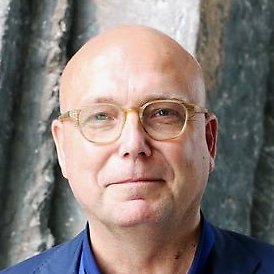
Magnus Ranstorp
Forskningsledare, Docent
- Magnus.Ranstorp@fhs.se
- +46 8-55342787
- Centrum för totalförsvar och samhällets säkerhet
- Stabsavdelningen
- Terrorism
Om Magnus
- Beskrivning om dig själv
-
Dr. Magnus Ranstorp has been a leading authority in research on counterterrorism and countering violent extremism (CVE) for over three decades. He played a crucial role in developing the globally recognized Centre for the Study of Terrorism & Political Violence at the University of St Andrews, founded in the mid-1990s.
As a pioneer in terrorism studies, Dr. Ranstorp was the first to conduct an in-depth analysis of the Lebanese Hezbollah movement, mapping its links to international terrorism and its strategic relationships with Iran and Syria. His book on Hezbollah was one of the first and most influential Western analyses on the subject. Before and after the 9/11 attacks, he served as a terrorism expert for CNN and was invited to testify at the first hearing of the 9/11 Commission in 2003.
In addition to his academic contributions, Dr. Ranstorp was involved in backchannel diplomacy. He participated in a secret backchannel between Israel and Hezbollah concerning the withdrawal of the Israel Defense Forces (IDF) from the security zone in southern Lebanon, in accordance with UN Security Council Resolution 425 (1997–2000). He was also involved in hostage negotiations with former UN negotiator Giandomenico Picco regarding the case of the IDF MIA 3+1 held by Hezbollah in Lebanon (2001–2003). During the same period, he also conducted extensive interviews with almost the entire Hamas leadership in Gaza, the West Bank, Jordan, Lebanon, and Syria, which culminated in his book Hamas: Terror inifrån (Mondial, 2024).
Dr. Ranstorp has been a key actor in shaping Europe’s strategies for preventing radicalization. In 2006, he was appointed to the European Commission’s original Expert Group on Violent Radicalisation and later contributed to the European Network of Experts on Radicalisation (ENER). In 2011, he played a pivotal role in establishing the EU Radicalisation Awareness Network (EU RAN), an initiative launched by then EU Commissioner Cecilia Malmström. Since its inception, he has held several important positions within EU RAN and has had a significant influence on the European Commission’s work on prevention. The initiative laid the foundation for a network of 7,000 practitioners, which has since evolved into the EU Knowledge Hub on Prevention of Radicalisation.
Currently, Dr. Ranstorp serves as Strategic Adviser at the Centre for Societal Security at the Swedish Defence University. He is also one of fifteen leading researchers selected by the European Commission to contribute to the EU Knowledge Hub on Prevention of Radicalisation.
His research has had a profound impact on policy and analysis concerning Foreign Terrorist Fighters (FTFs). His 2017 study on Swedish FTFs is based on a dataset of 267 out of 300 known Swedish foreign fighters, with data obtained from the Swedish Security Service. In 2017, he co-authored the EU RAN manual on responding to returning FTFs and their families. His 2018/2022 reports provided indepth analyses of Salafism and Salafi-jihadism in Sweden, while his 2020 study focused on the far-right in Sweden, with particular emphasis on the Nordic Resistance Movement (NMR) and the Alt-Right.
Beyond academia and research, Dr. Ranstorp has played a central advisory role in policy development. In 2015, he led the Expert Group for the City of Copenhagen in developing its Anti-Radicalisation Action Plan. He also serves as an advisor to the Swedish National Centre for Preventing Violent Extremism and is Vice-Chair of Nordic Safe Cities. Additionally, he is a regular columnist for Svenska Dagbladet and a board member of the Swedish International Development Cooperation Agency (SIDA). Since 2005, he has also been an elected member of the Royal Swedish Academy of War Sciences.
Senaste publikationer
-
Inside Hamas : How It Thinks, Fights, and GovernsIngår i Combating Terrorism Center - CTC Sentinel
